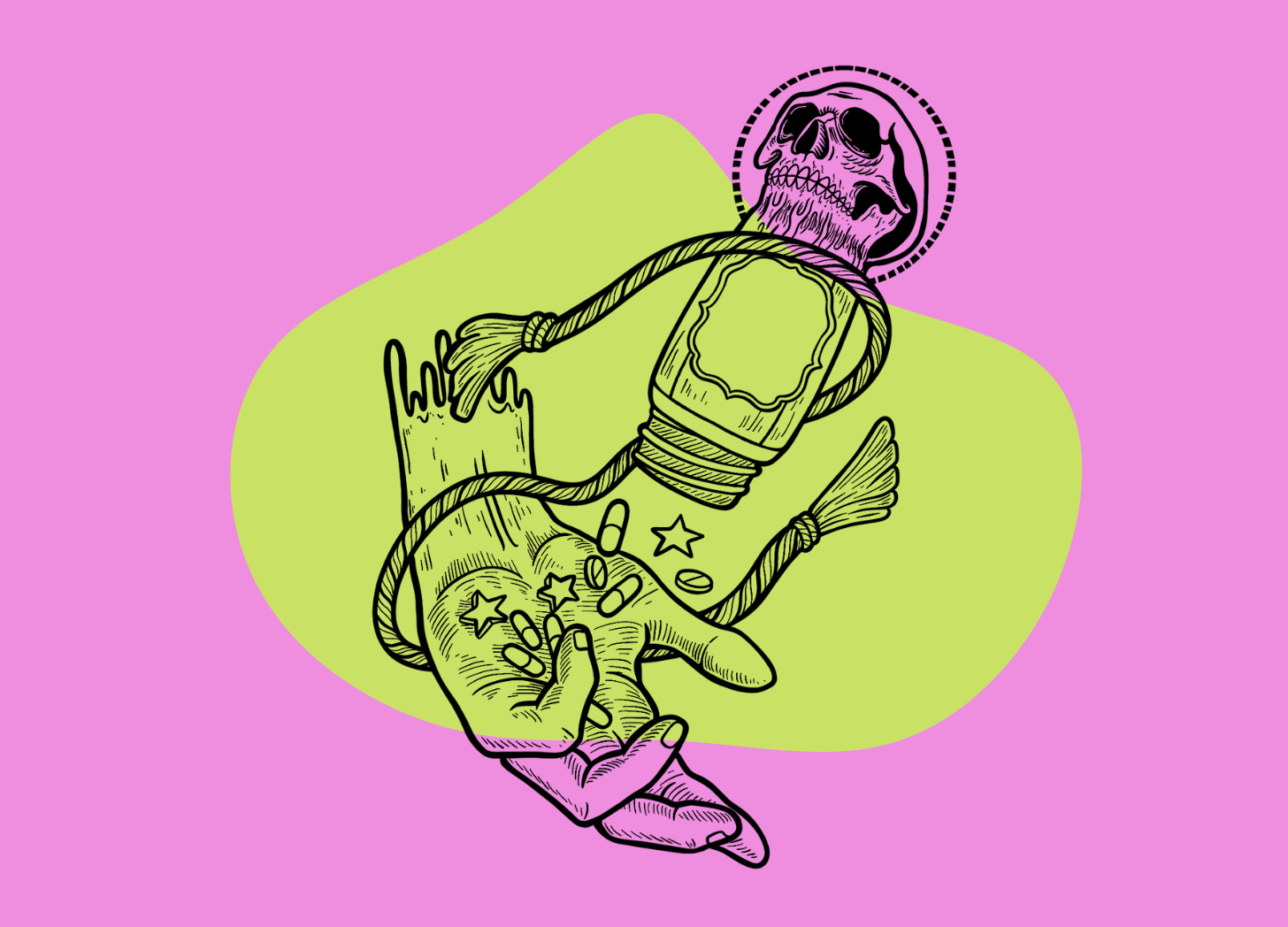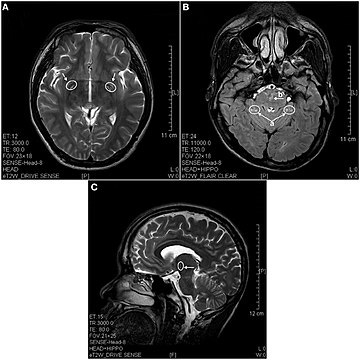Nootropic or Narcotic? The Dual Faces of Gas Station Heroin (Tianeptine)
"It will tear down even the most strong-willed individual’s self-control" — a warning from one Reddit post.
Tianeptine has been making headlines as "gas station heroin." But in 24 countries throughout Europe, Asia, and Latin America, the drug is prescribed as an antidepressant.
Most places consider tianeptine a restricted Substance — but in the United States, tianeptine is unregulated and legally sold as a nutritional supplement outside of FDA scrutiny.
Colorful packaging featuring symbolism of wings and mythological figures in head shops, gas stations, and online marketplaces pushes tianeptine as a nootropic, as a Kratom alternative, and as an antidote for opioid withdrawal.
Most of the claims for tianeptine are entirely anecdotal, and only a few brands post warnings on the labels. Some users report falling into a rapid and crippling addiction and extremely intense withdrawals after using the so-called “nootropic.”
A small amount of fatalities have even resulted from the drug — along with physical problems like seizures.
By far, the most common story is building a quick tolerance, spending all of one's money on "zazas," and becoming dependent on the drug.
Like any psychoactive drug, most of the harm comes from improper use. There are good parts and bad parts to any substance.
The key to safe consumption is education and moderation. Know what you’re getting into, don’t overdo it, and don’t fall for marketing gimmicks. Today, we shed some light on the enigmatic world of gas station heroin.
A Tale of Two Treatments: Tianeptine's Shift from Promise to Problem
Tianeptine was developed and patented in France in the 1960s. It's currently sold under the brand names Stabolon, Tatinol, and Coaxil around the world. Initially, there was enthusiasm around the drugs' supposedly having fewer side effects than MAOIs (monoamine oxidase inhibitors) and tricyclics — which were the mainstay for treating depression at the time.
Hints at tianeptine's addictive qualities have foreshadowed the havoc the drug is now creating in the States. A large study in France documented users "doctor shopping" to find tianeptine. No other drugs in the French study caused this behavior.
In America, “doctor shopping” is mainly associated with patients hunting down prescriptions for opioid drugs.
In Turkey, tianeptine is available through a prescription — but in Georgia, a neighboring country, regulations were passed in 2010 preventing access to the drug, citing its addiction potential. Many Georgians travel to Turkey to access the drug, giving it the nickname "The Georgia Drug" in Turkey.
Russia also decided to restrict the sale of the drug because too many people were injecting it.
In the United States, a pharmaceutical company, Tonix, got to Phase 2 in trials before discontinuing research in October 2023 due to a clear lack of positive results.
One clinical trial studying tianeptine for depression still exists in the United States.
“Gas Station Heroin”
Perhaps a distinction should be made between pure tianeptine and the bottles known as “gas station heroin.”
Generally speaking, gas station heroin contains tianeptine. But the truth is that nobody knows exactly what’s inside these pills. Nobody is monitoring what manufacturers add to these capsules because supplements operate with looser guidelines than FDA-approved drugs.
A recent New York Times article reported that Poison Control in New Jersey found that a common brand called “Neptune’s Fix” contained synthetic cannabinoids alongside tianeptine.
Many brands intentionally create blends, too. For example, “Zaza Silver” contains phenibut (another potentially addictive substance) and the antidepressant herb, kanna.
The amount of tianeptine in pills also seems to vary. Researchers found capsules of “Tianna” varied by as much as 36% from what was advertised. Individual bottles varied by as much as 16% overall.
What Does Tianeptine Feel Like?
Some reports of tianeptine use are what you would expect from anyone curious about nootropics or mental health.
"It's amazing stuff," says one Reddit post. "Really good for anxiety, mood, and motivation. Negligible side effects, most notably a more relaxed memory. Indeed, one of the best substances I have experimented with."
The above user took a dose comparable to what is prescribed in research for several months. We don’t know what happened to that user over the long term, and the comments below are full of warnings.
"The energy boost and positive state of mind (the high) comes on quickly and lasts maybe three or four hours," says Bluelight.org user MikeSS, adding the short duration means "it's easy to go from one or two grams a day to 10 or more."
This person got hooked, eventually ordering tianeptine wholesale from Asia to cut costs.
"I'd wake up in the middle of the night needing to snort a little spoon of it."
They also recall moving up to full-gram doses. Eventually, their ankles and lower legs start swelling with edema (fluid retention).
Finally, after mixing tianeptine with phenibut, they were admitted to emergency, hallucinating and delusional, with dangerously low potassium levels. In retrospect, the user said they felt lucky to have survived.
A Serotonin Paradox: Dissecting Tianeptine's Mechanism of Action
Tianeptine is a tricyclic antidepressant. However, unlike other tricyclics, tia does not work on the serotonin receptors the way other antidepressants do — in fact, it does nearly the exact opposite.
Studies have found tianeptine acts as a serotonin reuptake enhancer (SRE) — which is the exact opposite mechanism of action most antidepressants use. SSRI drugs (selective serotonin reuptake inhibitors) are the most common medications used for treating depression. They work by blocking the reuptake of serotonin into the synapses — thus increasing synaptic serotonin.
Tianeptine and other SREs instead reduce the amount of serotonin in the synapses.
Unfortunately, the true mechanism of action is still contested — nobody seems to be able to agree on exactly how this drug works.
For example, one study reported that tianeptine had no affinity for serotonin receptors. Instead, the study claimed tianeptine binds to μ-opioid receptors (MOR), along with small effects on δ-opioid (DOR) and κ-opioid (KOR) receptors.
Another study suggests that tianeptine's mechanism of action is reliant on the drug's ability to block the NMDA receptors (N-methyl-D-aspartate) — which is the same mechanism used for dissociative drugs like ketamine, PCP (phencyclidine), DXM (dextromethorphan), and nitrous oxide.
At least some of tianeptine's alleged benefits could stem from its ability to block NMDA. There's a ton of research available on the antidepressant, nootropic, and neuroplasticity-inducing effects of another NMDA antagonist — ketamine.
The problem is that simply stating these benefits exists because tianeptine blocks NMDA receptors is an oversimplification. There are plenty of examples of drugs that block NMDA that don't have these effects. Some, like the drug MK-801 or PCP, are even believed to damage the brain rather than repair it.
The enigmatic effects of tianeptine runs deep. One study suggested the drug stimulates brain-derived nerve growth factor (BDNF) or perhaps even activates certain genes associated with BDNF production. BDNF is a protein that belongs to the neurotrophin family of growth factors, which are intimately involved in the regeneration and repair of nerve cells.
As controversial as tianeptine is, rodent models performed in the 90s showed clear acute improvements in learning and memory — perhaps by blocking stress.
Human trials for the cognitive-enhancing effects of tianeptine have never been done, so it’s unclear if these effects truly transfer to provide a net positive gain in humans — especially considering the amount of neurological and addiction issues users are reporting online.
Rather than relying on qualitative research, social media, clever marketing, and lack of federal restrictions are driving the drugs’s popularity as health supplements.
Keep reading with a 7-day free trial
Subscribe to Tripsitter to keep reading this post and get 7 days of free access to the full post archives.









